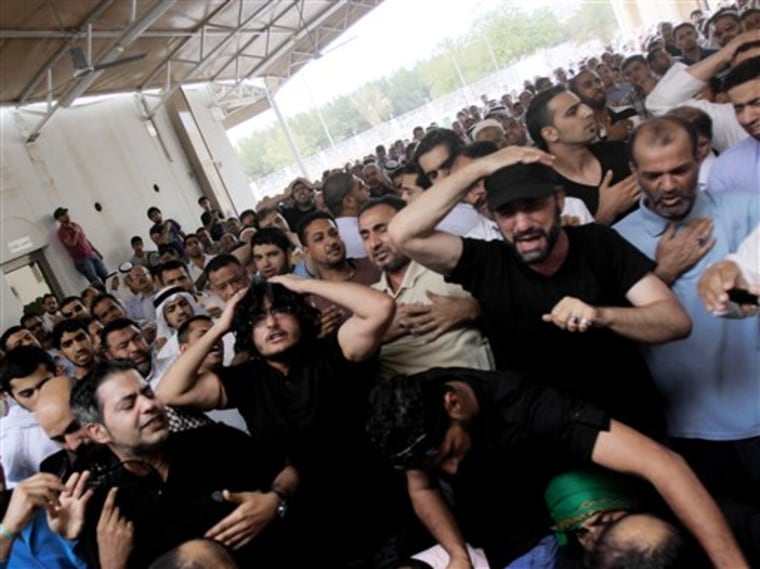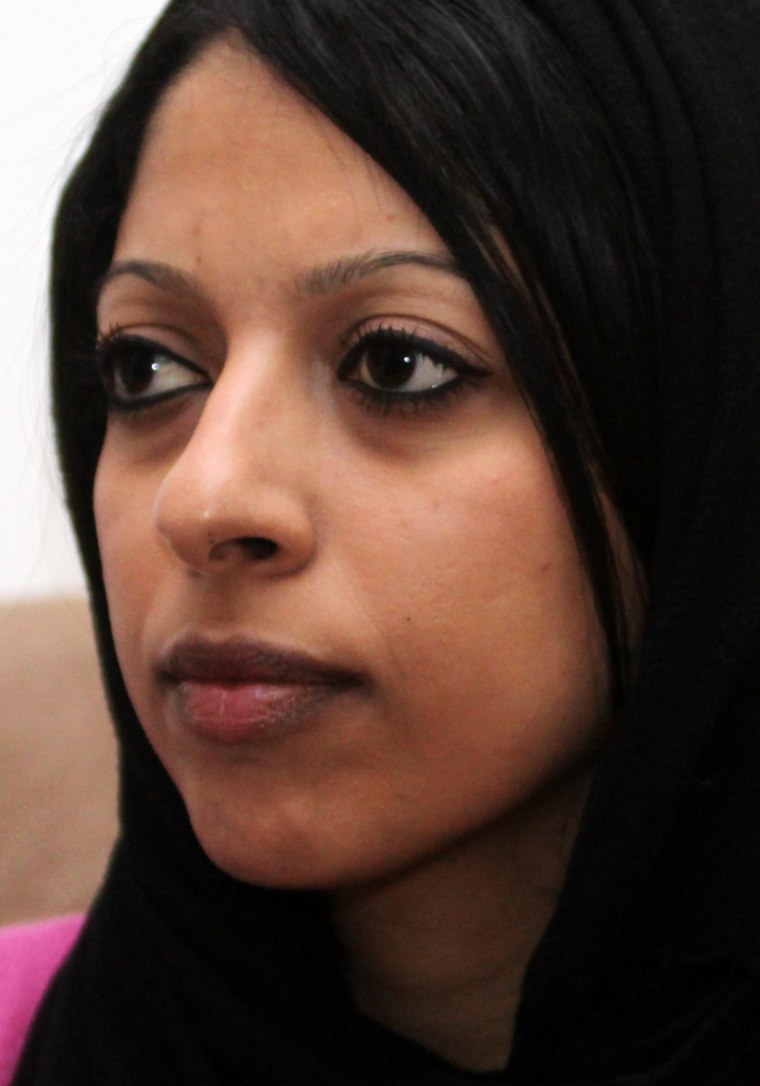A daughter of a prominent Bahraini human rights activist is entering her fourth day of a hunger strike and says she is willing to die unless her father is released, along with her husband, brother-in-law and uncle.
Zainab al-Khawaja, 27, said her father, outspoken dissident Abdulhadi al-Khawaja, 50, was beaten unconscious by masked soldiers and taken into custody with her husband and brother-in-law at her Shiite village apartment outside the capital, Manama, around 2 a.m. Saturday.
The uncle was arrested in a different police sweep.
The mother of a baby girl first announced her hunger strike in a letter addressed to President Barack Obama that she posted on her blog on Monday.
"My father's only crime is that he has documented human rights abuses in Bahrain," Zainab al-Khawaja told the AP in a phone interview. "I demand he and all men of my family are released."
Her father has called for Bahrain's king to face trial for murder, torture and corruption.
State Department spokesman Mark Toner said the U.S. was aware of the case and was calling on Bahraini authorities to "allow these individuals to freely express themselves and uphold their universal rights."
Zainab, who was brought up in exile in Denmark, is taking only water, and told the Guardian of London on Wednesday that she is already feeling weak, with breast-feeding sapping her strength faster than she had expected. She said she will leave her 18-month-old child with family members if she dies.
"I am willing to go all the way," she told the Guardian. "Either they come out or I will not eat. I don't care where it ends up."
Asked whether she was willing to die, she replied: "Yes. It is difficult with a child, but I am willing to make that sacrifice. My daughter has great aunts and grandmothers who will look after her if anything happens to me … We have the feeling that sacrifices are necessary to bring changes to our country, but what is making it harder is the way the world is reacting. Still the U.S. administration is standing with the dictator here."

Her threat to take her own life came as as Bahrain's Shiite opposition party said Wednesday that another one of its supporters, the fourth to date, had died in police custody.
Al Wefaq, Bahrain's main opposition party in the Sunni-ruled Gulf country, said Haji Karim Fakhrawi died in "mysterious circumstances," while his relatives pointed to a body covered in bruises saying he had died of torture.
Bahrain's official news agency cited the medical examiner from the army hospital saying Fakhrawi died of kidney failure.
At least 30 people have been killed since anti-government protests by Bahrain's Shiite majority began in February. Hundreds have been detained in the crackdown on the rebellion.
The State Department's Toner said the U.S. was aware of Fakhrawi's death and was deeply concerned about the deaths of individuals while in custody in Bahrain.
"We strongly urge the government of Bahrain to ensure the security of all arrestees," Toner told reporters in Washington.
He said Bahrain's government must guarantee transparent judicial proceedings in line with Bahraini and international standards. It should also conduct complete and transparent investigations into all the deaths, he said.
